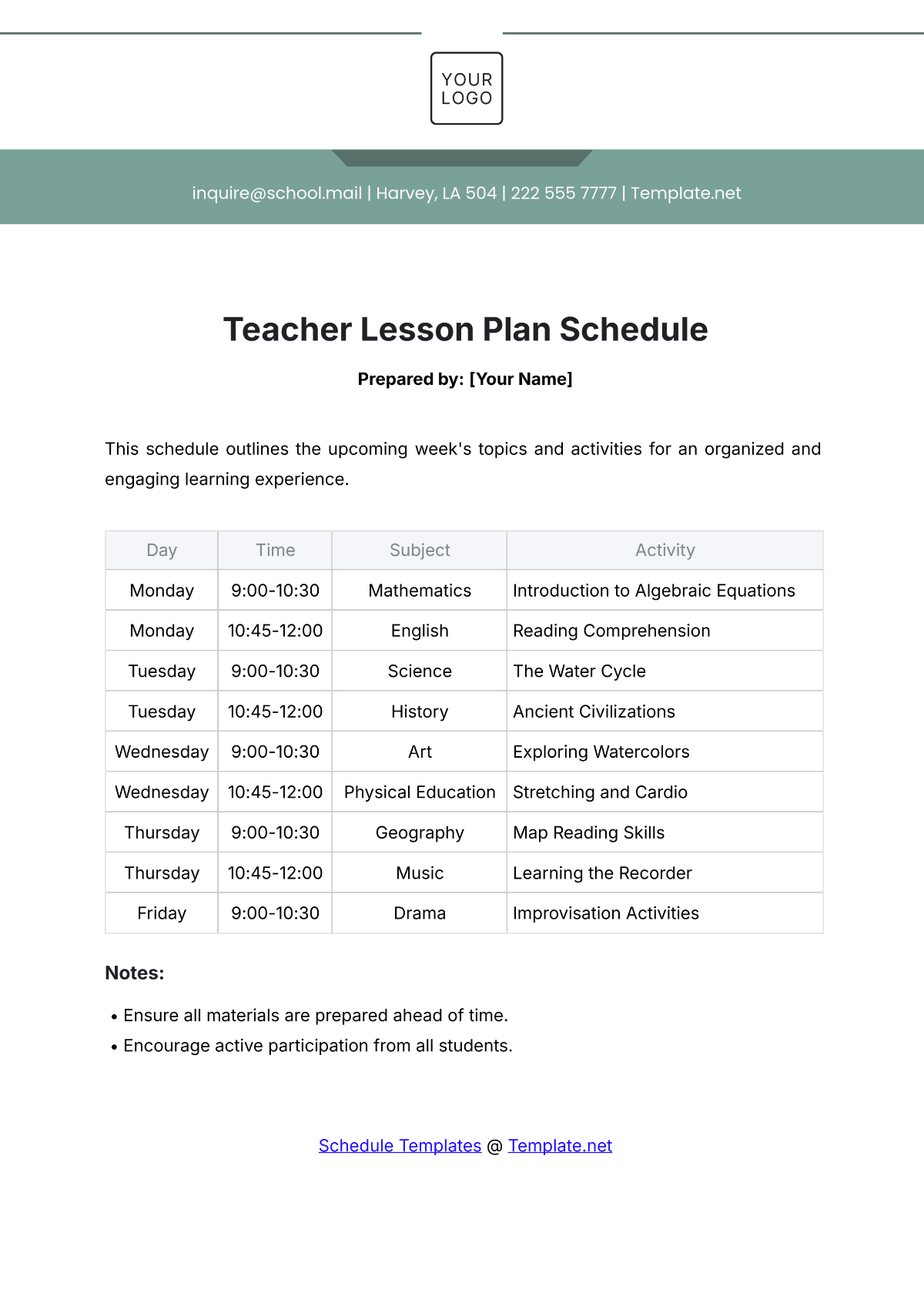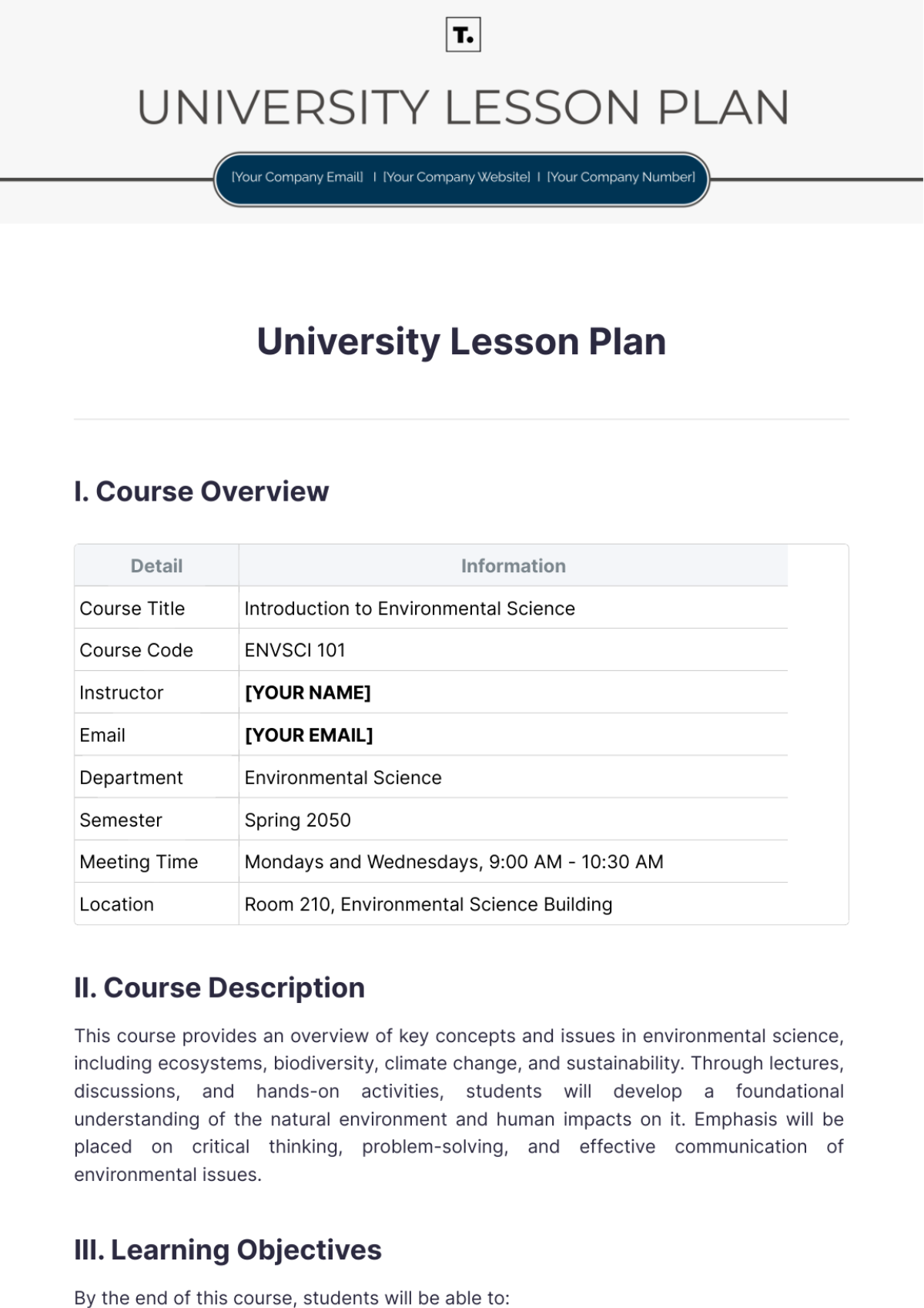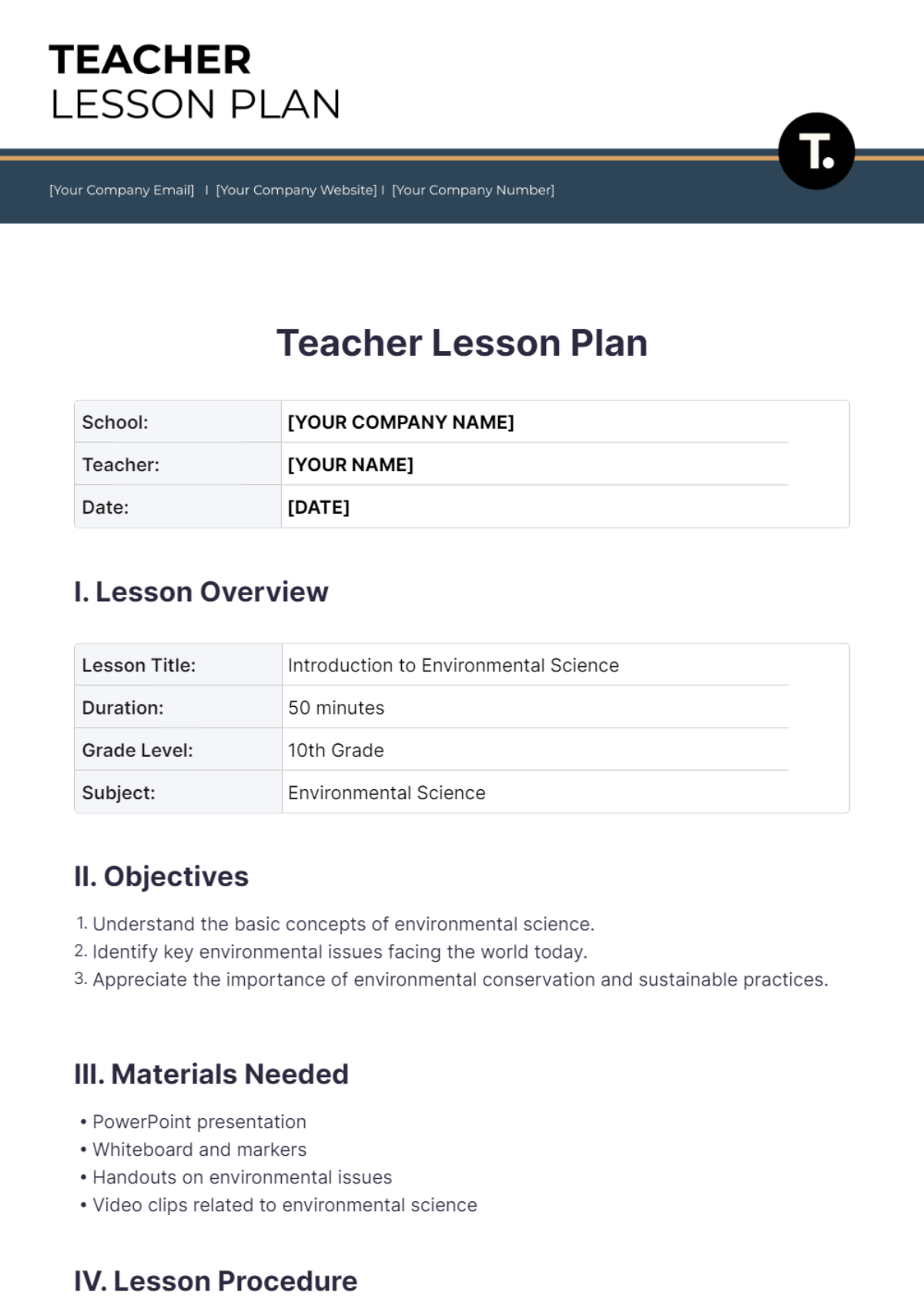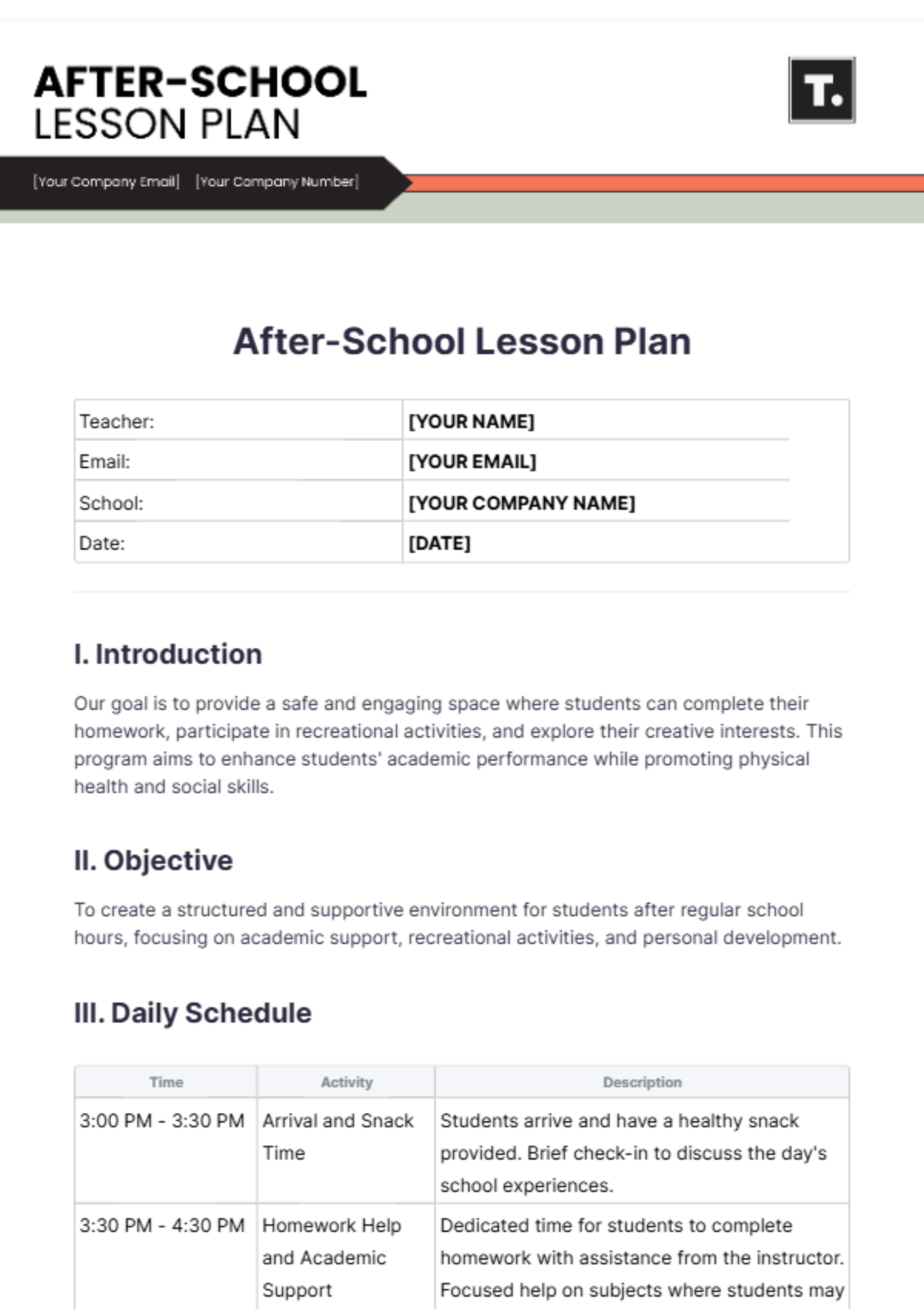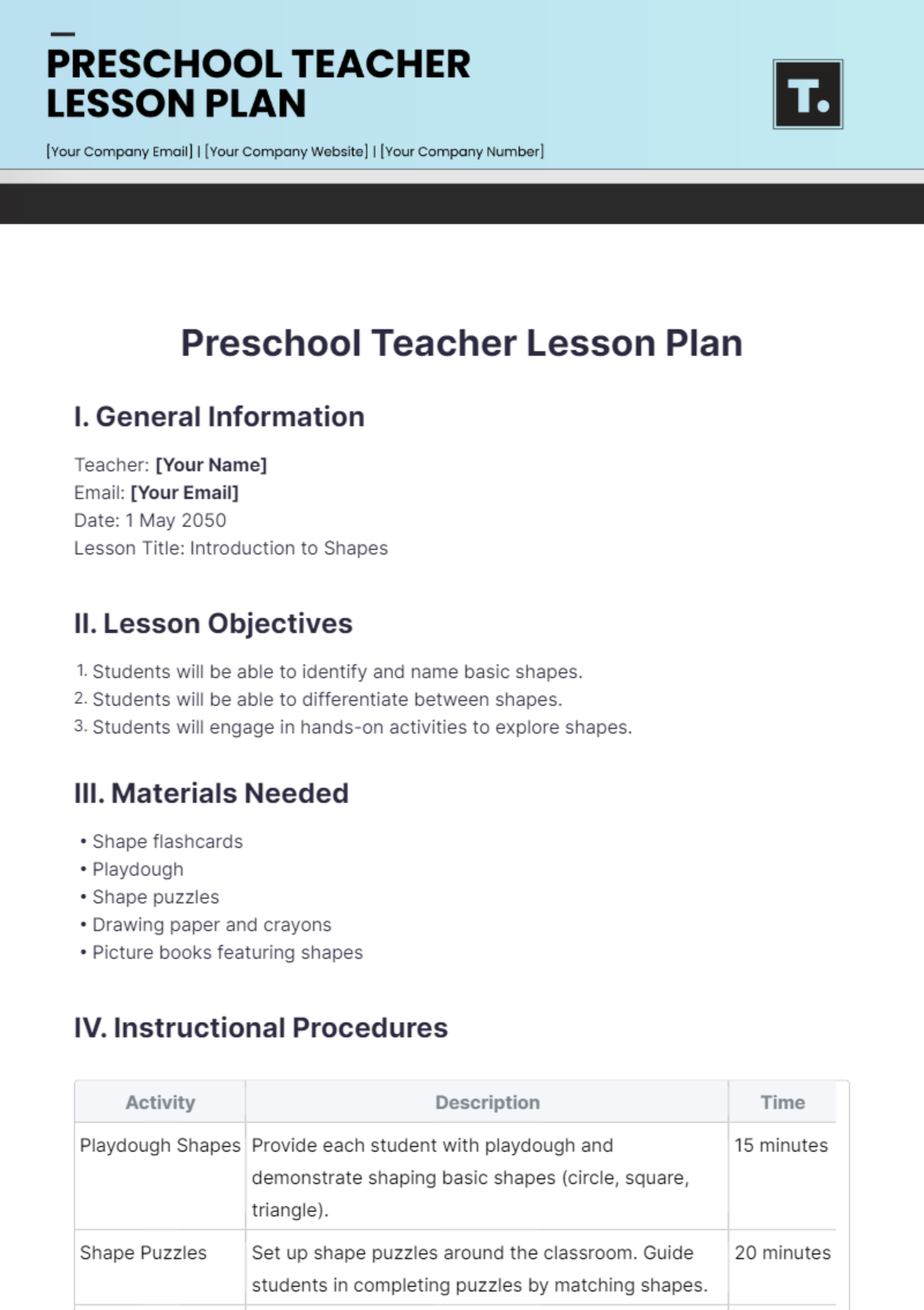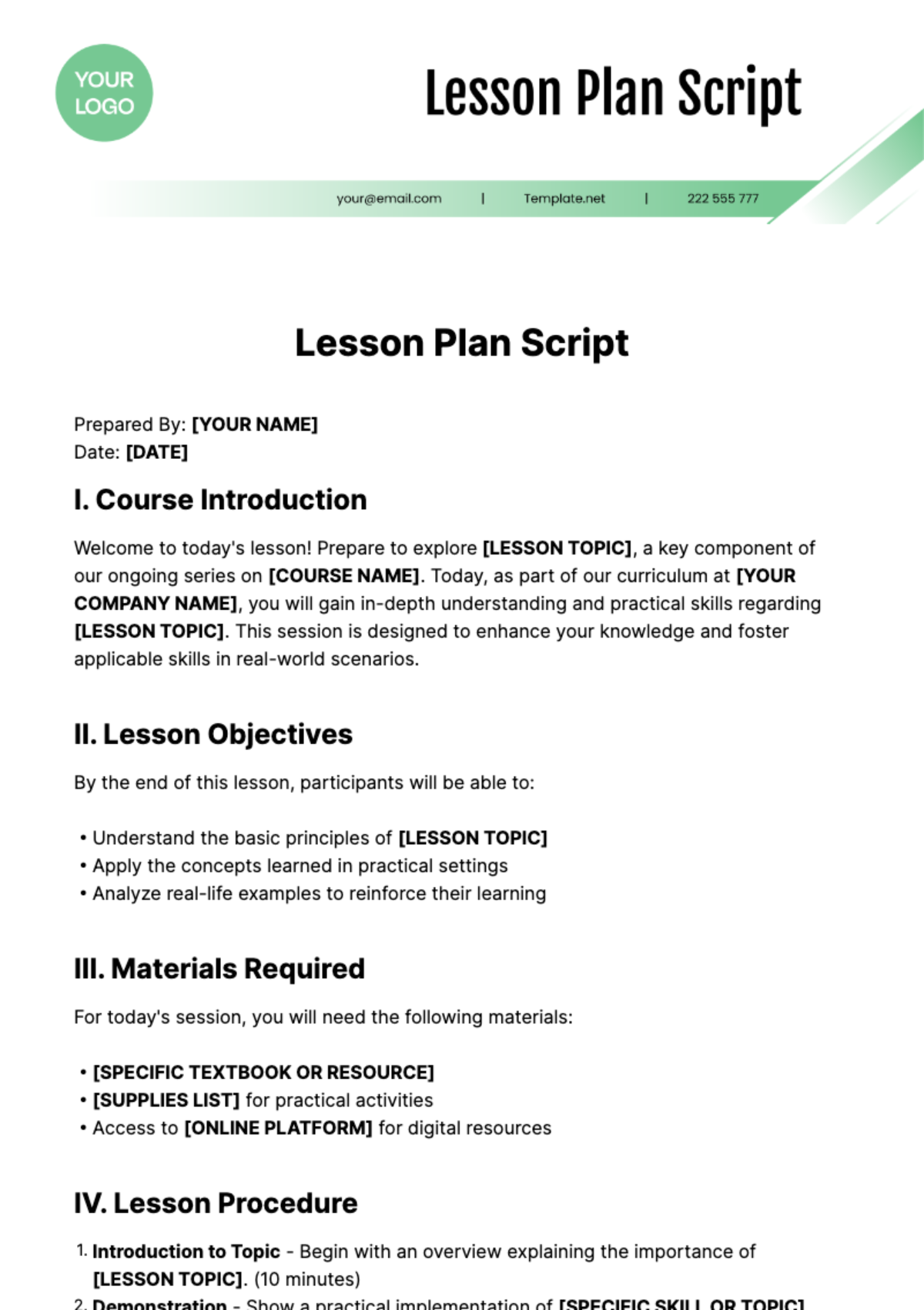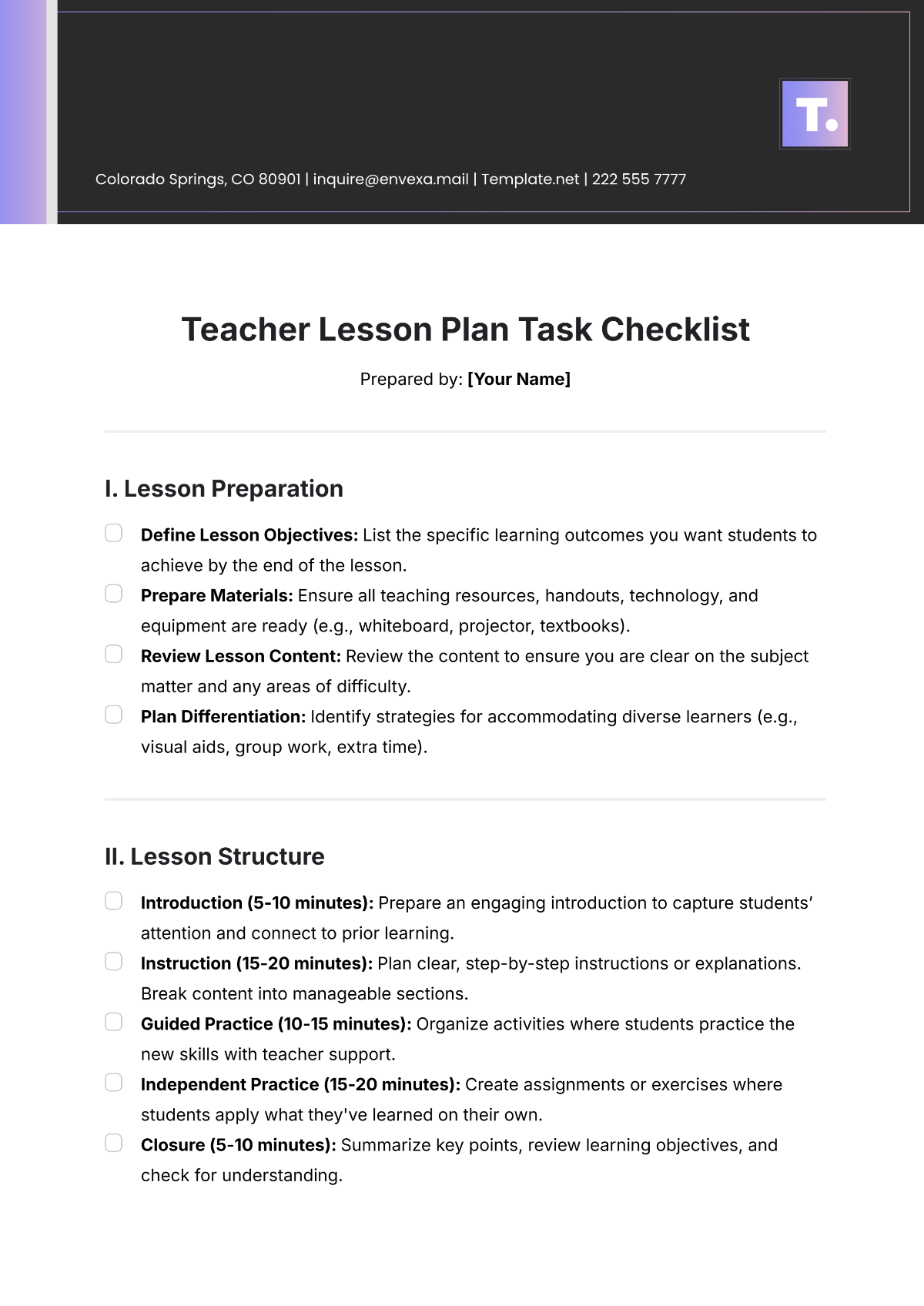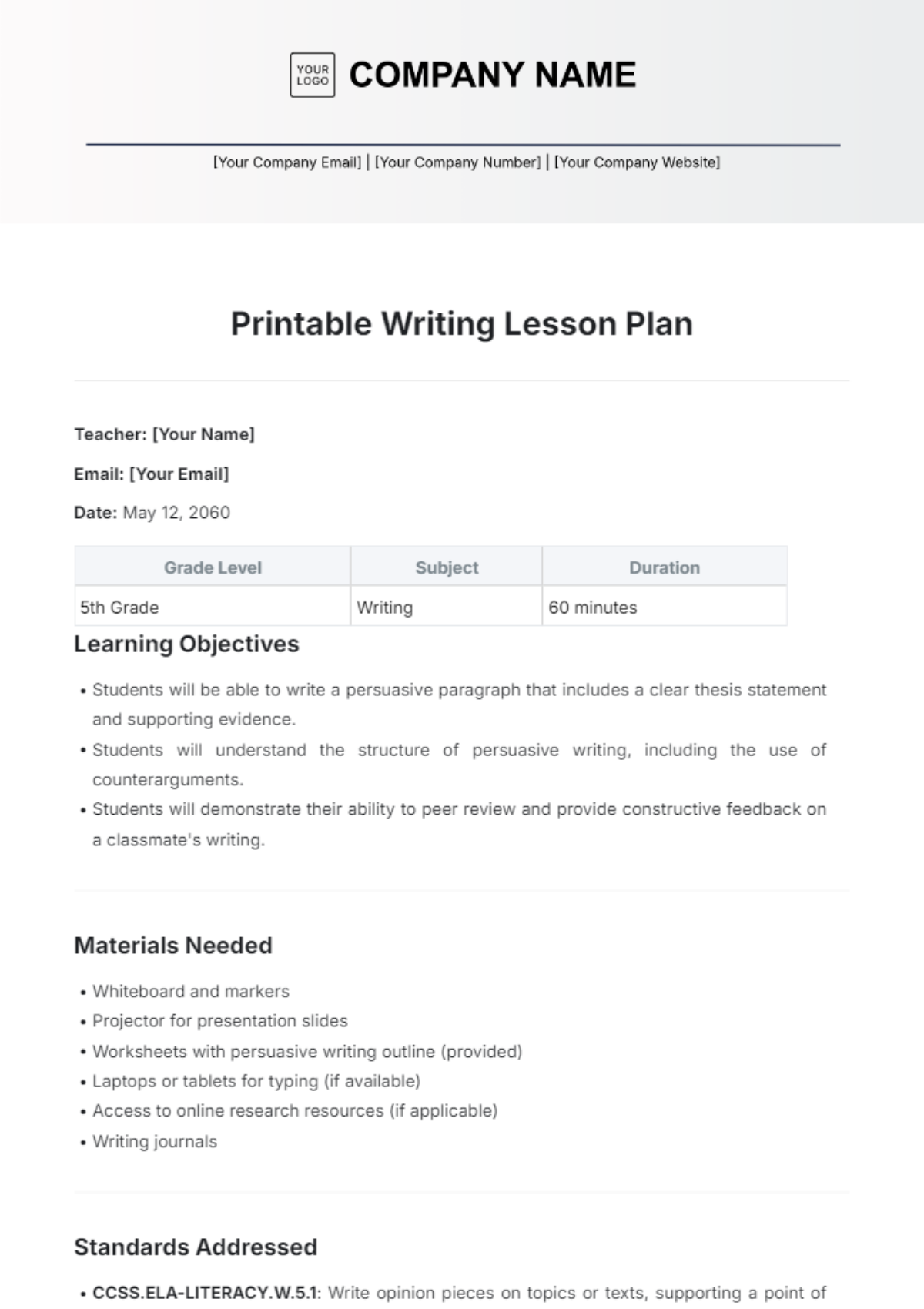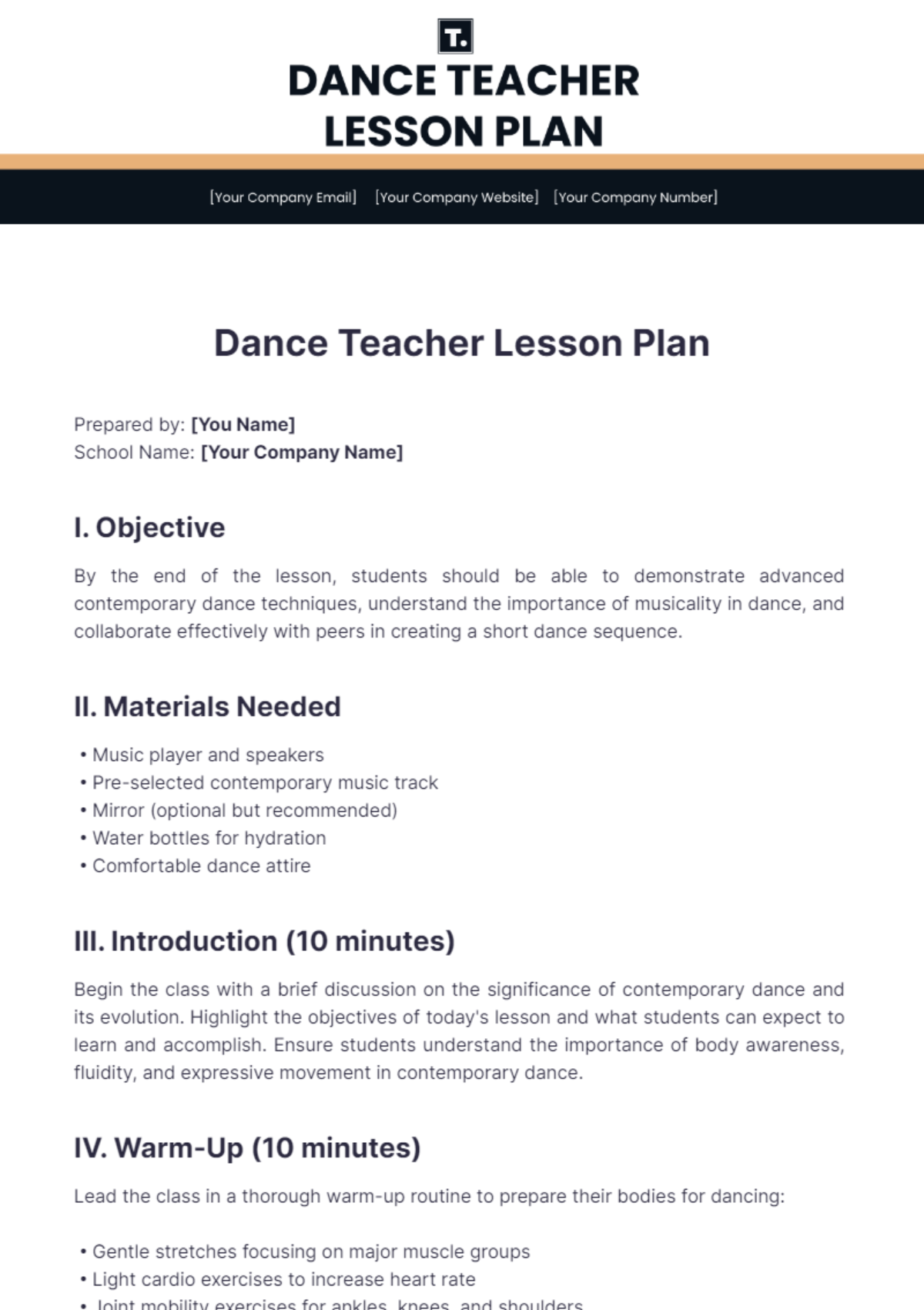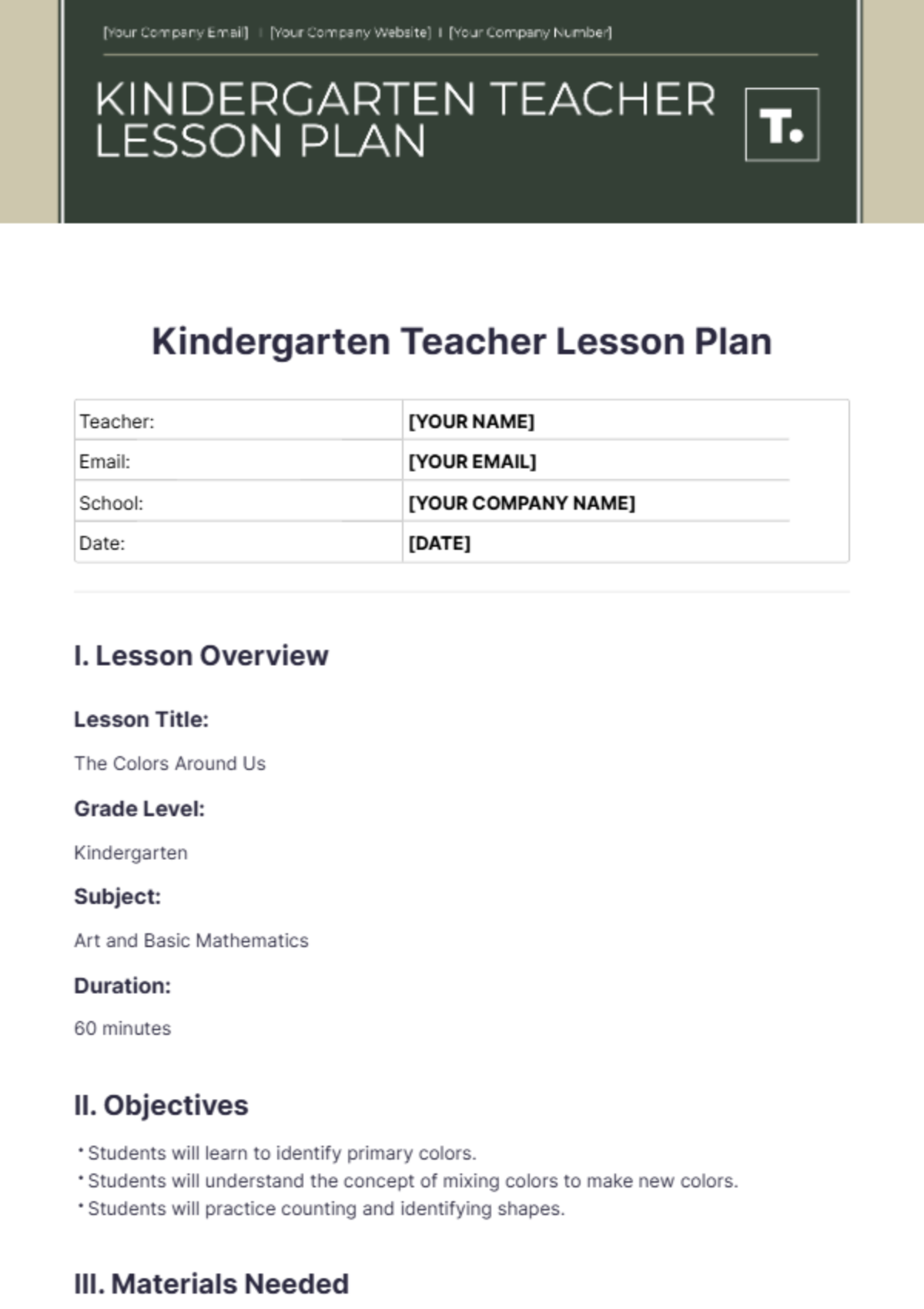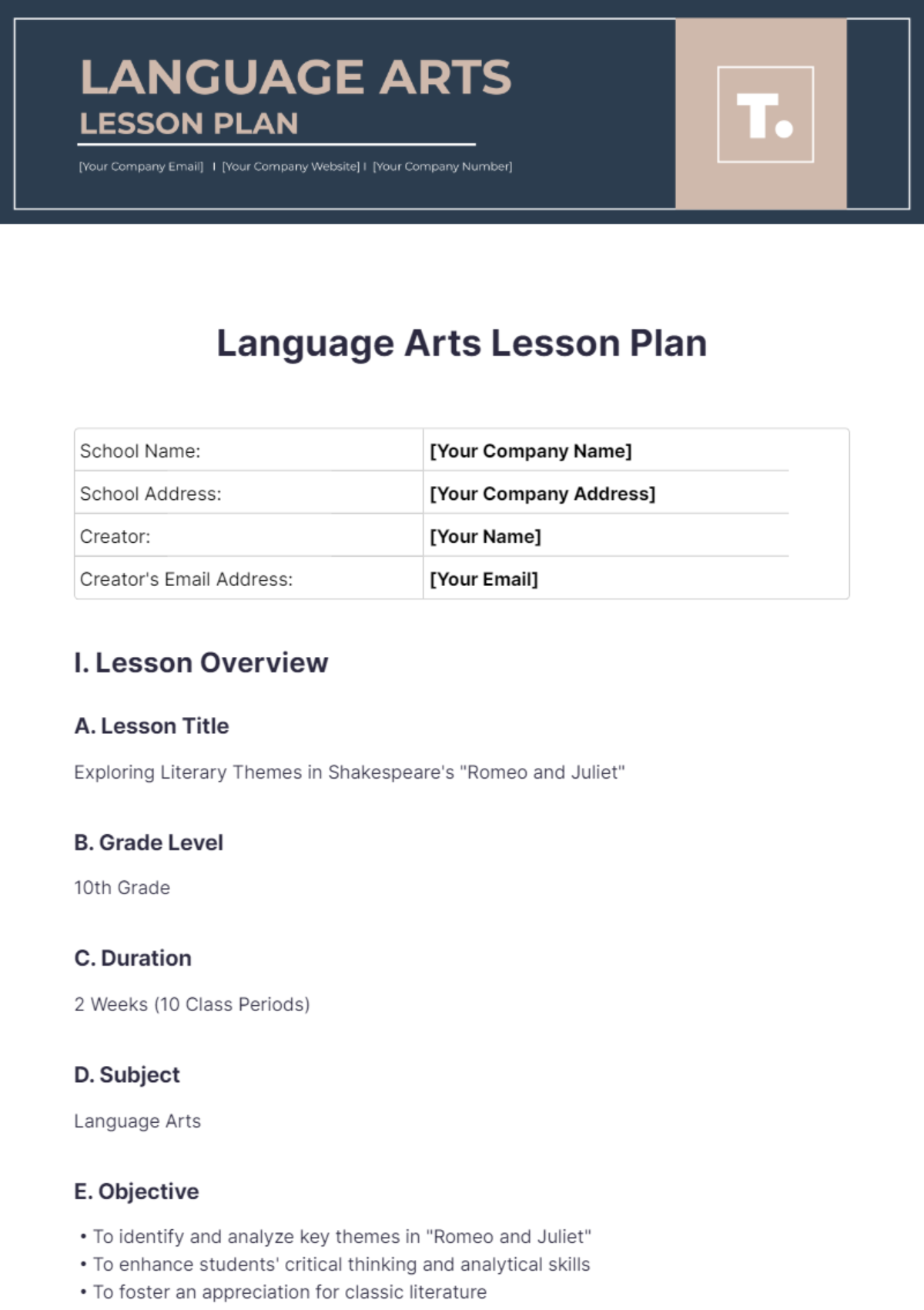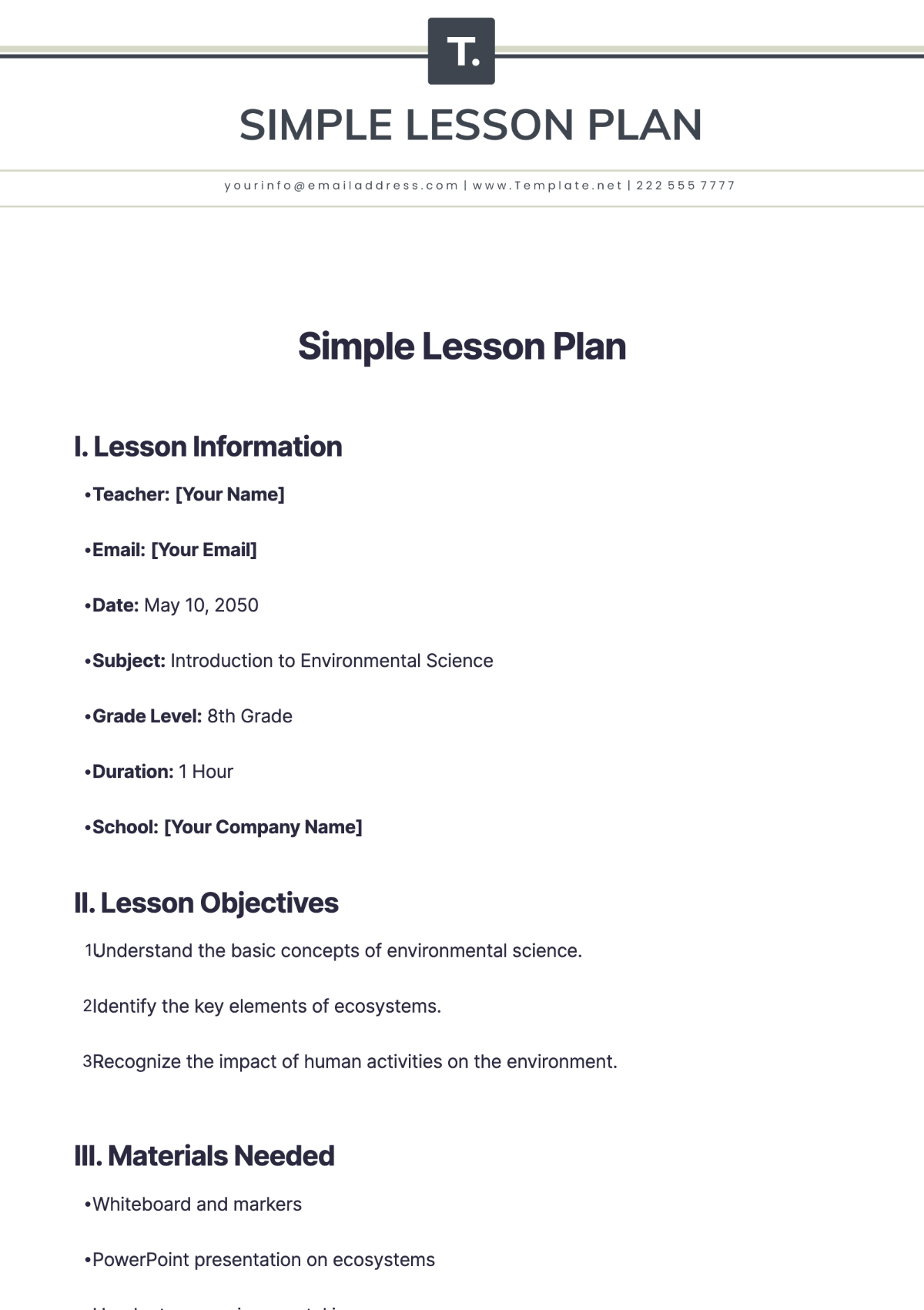Language Arts Lesson Plan
School Name: | [Your Company Name] |
School Address: | [Your Company Address] |
Creator: | [Your Name] |
Creator's Email Address: | [Your Email] |
I. Lesson Overview
A. Lesson Title
Exploring Literary Themes in Shakespeare's "Romeo and Juliet"
B. Grade Level
10th Grade
C. Duration
2 Weeks (10 Class Periods)
D. Subject
Language Arts
E. Objective
To identify and analyze key themes in "Romeo and Juliet"
To enhance students' critical thinking and analytical skills
To foster an appreciation for classic literature
II. Standards and Curriculum Alignment
A. Common Core Standards
CCSS.ELA-LITERACY.RL.9-10.2: Determine a theme or central idea of a text and analyze in detail its development.
CCSS.ELA-LITERACY.RL.9-10.3: Analyze how complex characters develop over the course of a text.
B. Curriculum Goals
Theme identification and analysis
Character analysis
Textual evidence and interpretation
III. Materials and Resources
A. Required Text
"Romeo and Juliet" by William Shakespeare
B. Supplementary Materials
Handouts on major themes and character profiles
Audio-visual aids (film adaptations, audio recordings)
Interactive whiteboard
IV. Procedure
A. Introduction
Begin with a brief discussion on Shakespeare and the relevance of "Romeo and Juliet". Introduce the key themes to be explored.
B. Instruction
Day 1-2: Read Act 1 together in class. Discuss initial impressions and emerging themes.
Day 3-4: Group activities to analyze the characters of Romeo and Juliet.
Day 5-6: Watch selected scenes from a film adaptation and compare it with the text.
Day 7-8: In-depth analysis of major themes (love, fate, conflict, etc.) with textual evidence.
Day 9-10: Individual presentations on selected themes and their contemporary relevance.
C. Guided Practice
Work in small groups to discuss and present findings on different acts and scenes. Use structured worksheets to guide analysis.
D. Independent Practice
Assign a reflective essay on a chosen theme with supporting evidence from the text.
E. Closure
Hold a class discussion on the lessons learned from "Romeo and Juliet" and how they apply to modern life.
V. Assessment
A. Formative Assessment
Class participation
Group discussions
Short quizzes on reading comprehension and theme identification
B. Summative Assessment
Reflective essay on a chosen theme
Individual presentations
VI. Differentiation/Modifications
A. For Advanced Students
Encourage deeper analysis of minor characters and sub-themes
Assign additional readings on Shakespearean criticism
B. For Struggling Students
Provide simplified summaries of each act
Offer one-on-one support during group activities
VII. Reflection
A. Teacher Reflection
After the lesson, reflect on what worked well and what could be improved. Note any significant student breakthroughs or challenges.
B. Student Feedback
Collect feedback from students about their learning experience and any aspects they found particularly engaging or difficult.
VIII. Contact Information
For further details, please contact [Your Name] at [Your Email].

